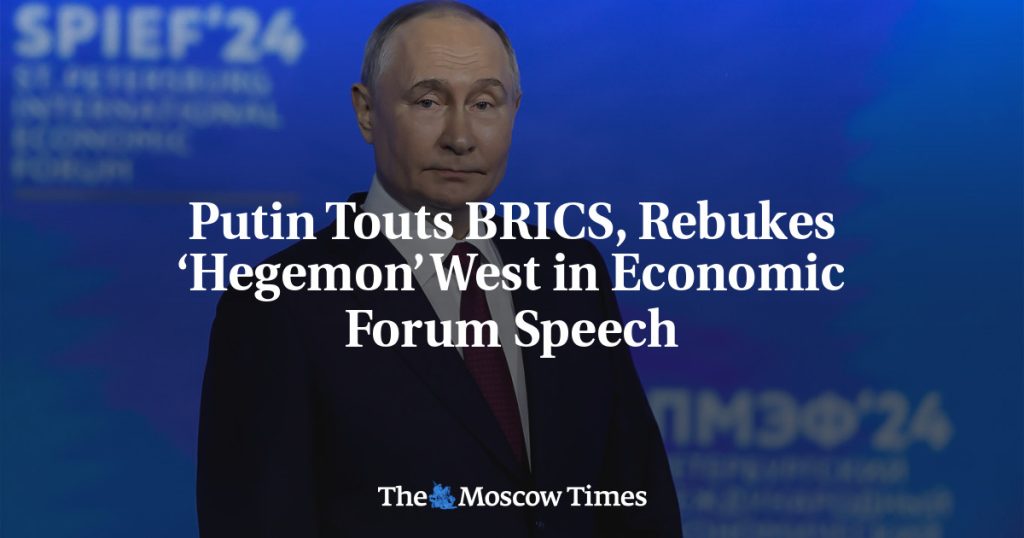In his address at the St. Petersburg International Economic Forum (SPIEF), President Vladimir Putin emphasized the global race among countries to strengthen their sovereignty in response to Western nations’ attempts to maintain hegemony. Russia has been seeking support from countries in Africa, South America, and Asia while positioning itself as a counterforce to what it sees as neo-imperialist intentions from the West, especially since the invasion of Ukraine led to Western sanctions against Russia. Putin highlighted the BRICS alliance as a geopolitical counterweight to Western power and influence and emphasized the development of an independent payment system to avoid political pressure and external sanctions interference.
Prior to Putin’s address, a dramatic video presentation was shown at the plenary session, illustrating the history of European colonization and its impacts on Indigenous peoples. The video drew parallels to modern-day relations between Western countries and the Global South. While focusing on global issues, Putin also addressed domestic topics such as state investment in higher education, low unemployment rates, and the growth of homegrown brands in the wake of Western companies leaving Russia after the Ukraine invasion. Although Putin mostly avoided discussing the war in Ukraine during his address, he did acknowledge Russian businesses that support the country’s armed forces by providing products, equipment, and assistance to soldiers, veterans, and their families.
SPIEF, also known as the “Russian Davos,” has historically attracted leading Western businesspeople, investors, and officials to St. Petersburg, facilitating major international deals like the Nord Stream gas pipeline. However, since Russia’s invasion of Ukraine in 2022, the forum has shifted its focus towards Asia and Africa, reflecting Moscow’s diplomatic and economic isolation from Western allies of Kyiv. In addition to Putin, key speakers at the plenary session of SPIEF included the leaders of Bolivia and Zimbabwe. The forum serves as a platform for showcasing Russia’s partnerships and alliances with countries beyond the Western sphere of influence.
Putin’s emphasis on the race for sovereignty among countries and the role of BRICS alliance in countering Western hegemony underscores Russia’s efforts to establish itself as a global power. The address at SPIEF highlighted both global and domestic issues, showcasing Russia’s response to challenges posed by Western sanctions and isolation. By promoting independence from political pressures and external interference, Putin aims to position Russia as a key player in the changing geopolitical landscape. Despite criticism and restrictions from Western nations, Russia is forging new partnerships and alliances to maintain its influence in global affairs. As the world witnesses shifts in power dynamics, Putin’s address at SPIEF reflects Russia’s determination to navigate through changing tides and assert its sovereignty in the face of Western dominance.















